Speeches Shim
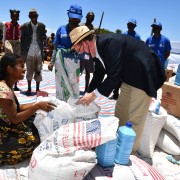
Alongside President Andry Rajoelina, U.S. Ambassador Michael P. Pelletier was pleased to announce three new projects funded by the United States Agency for International Development (USAID), making an additional $100 million commitment by the United States to combat food insecurity in Madagascar. Through these projects, the Government of the United States, working side-by-side with the Government of Madagascar, will respond to the urgent needs of families in hunger and provide long-term solutions to food insecurity in the south and southeast of Madagascar.
The COVID-19 pandemic threatens more than the health and livelihoods of Madagascar’s people; it also jeopardizes thousands of critically endangered tortoises currently in the care of the Turtle Survival Alliance (TSA). Facing a projected 80% drop in funding from its largest supporters -- zoos and aquariums now shuttered due to COVID-19 -- TSA thought it would soon be forced to prematurely release thousands of critically endangered tortoises under its care in Madagascar.
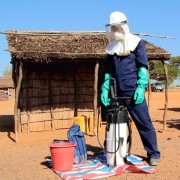
Malaria remains a severe risk to millions of people in Madagascar. It is the fourth leading cause of disease and one of the top reasons people seek care at health centers. Since the beginning of the year, over 1.4 million people in Madagascar, 5.6% of the population, have fallen ill with malaria. The U.S. Government is the largest single country donor to Madagascar's health sector, providing $62 million each year to fund the United States Agency for International Development’s (USAID) health activities, including $26 million for malaria prevention and treatment.
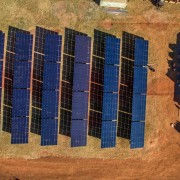
The United States Government, through the United States Agency for International Development (USAID) and the Power Africa initiative, has awarded three companies in Madagascar a combined $1.2 million in grant funding to develop mini-grids that will bring electricity to more than 5,200 rural homes and businesses. These grants are part of the U.S. Government’s $3 million effort to increase energy production and electricity access in Madagascar. Since 2018, the initiative has helped more than 57,000 people gain access to electricity and will, by 2022, provide electricity to over 400,000 people.
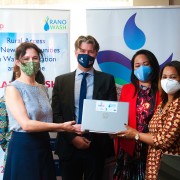
The U.S. Government, through the United States Agency for International Development’s (USAID) Rural Access to New Opportunities in Water, Sanitation, and Hygiene (RANO WASH) project, has donated $18,000 of computer equipment, including desktop and laptop computers, smartphones, and teleconferencing equipment, to the Ministry of Water, Sanitation, and Hygiene.
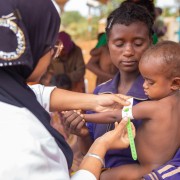
As food insecurity in southern Madagascar becomes more severe, the United States Government, through the United States Agency for International Development (USAID), has provided $2.5 million to UNICEF and the World Food Programme (WFP) to provide treatment for children under five years of age who are suffering from moderate and severe acute malnutrition.
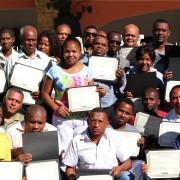
The United States Government, through the United States Agency for International Development (USAID) and the President's Malaria Initiative (PMI), in partnership with Madagascar’s Ministry of Public Health (MOPH), is officially launching the PMI Measure Malaria project to build up the national health information system and combat malaria in Madagascar. Funded by USAID and PMI, PMI Measure Malaria is a five-year project operating in 10 countries across Africa, including Madagascar. In the current year, the U.S. Government is contributing nearly $1.5 million to implement activities here.
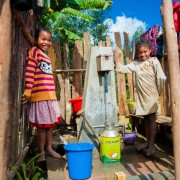
For too many years, the communities of Anosibe Ifody (Moramanga, Alaotra Mangoro region) and Niarovana Caroline (Vatomandry, Atsinanana region) in Eastern Madagascar have struggled under the burden of undependable, contaminated water sources that led to sickness and poor sanitation. Anosibe Ifody was plagued with water quality problems including siltation during the rainy season and bacteriological contamination. Meanwhile, the citizens of Niarovana Caroline frequently face bouts of bilharziasis, a disease caused by a water-born pathogen.
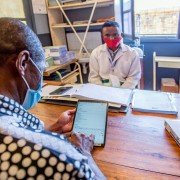
The U.S. Government’s President’s Malaria Initiative (PMI) and the United States Agency for International Development (USAID) are donating 65 tablet computers to support the Government of Madagascar’s plan to stamp out malaria in the districts of Antsirabe II and Antsiranana I. The U.S. Government, through PMI and USAID, supports Madagascar’s Ministry of Public Health and the National Malaria Control Program (NMCP) to reduce malaria in Madagascar. Part of the national anti-malaria strategy is to completely eliminate malaria in districts that have a low number of cases.


Comment
Make a general inquiry or suggest an improvement.